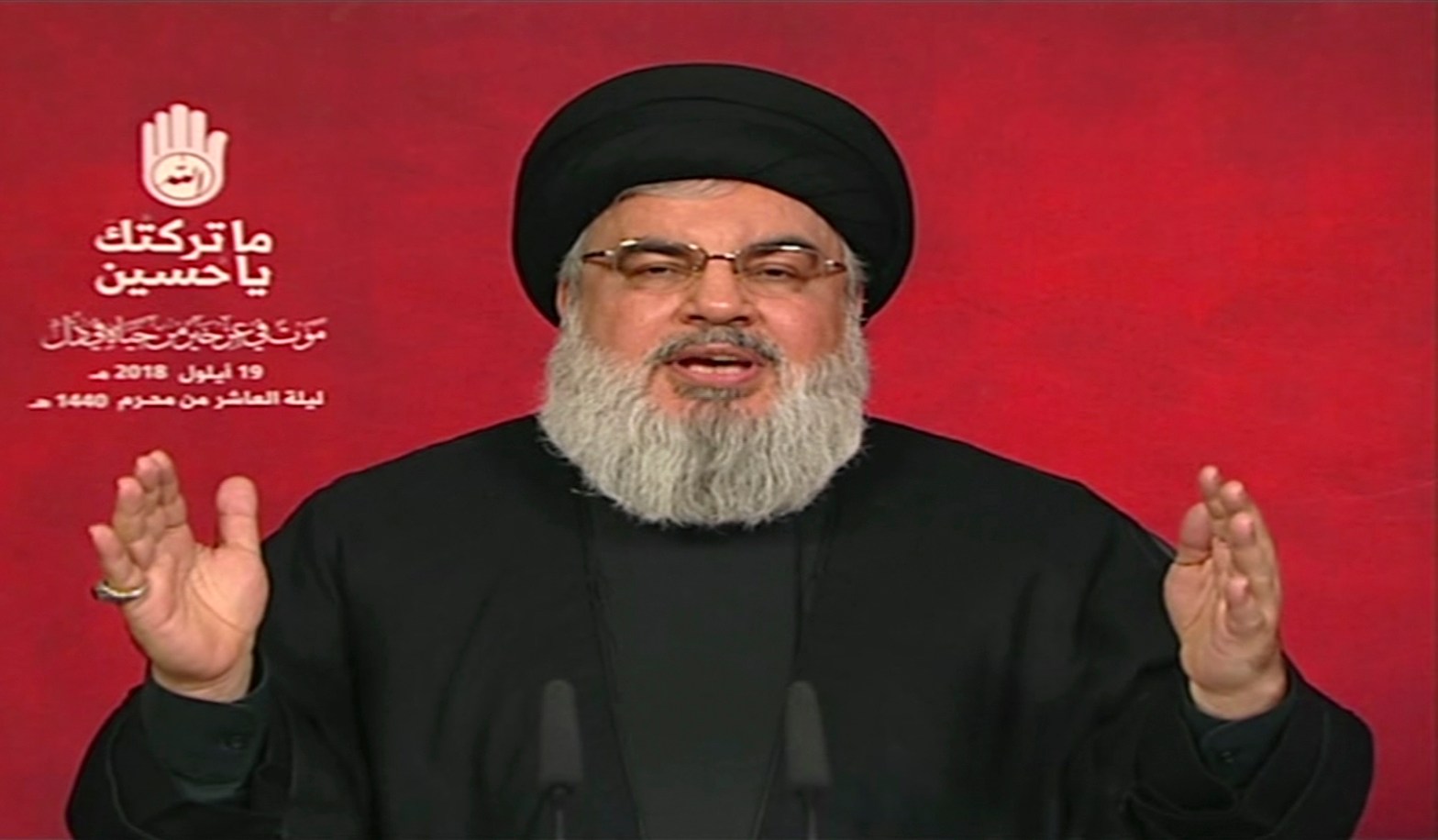
A Lebanese-American Pentagon contractor in Iraq has been charged with espionage for allegedly passing information about US intelligence sources to an individual linked to Hezbollah. The incident, whether ultimately proved true or not, nevertheless exposes Hezbollah for what it truly is – not a merely local Lebanese party, but a violent organization with global reach.
Hezbollah likes to portray itself as a local resistance movement, a plucky little David defending Lebanon against the Goliath of Israeli aggression. The truth is far less heroic and far more brutal.
The “Party of God” has a long history of involvement in terrorist plots across the world.
The first was the attack against a Jewish center in Buenos Aires in 1994, which killed 85 people and injured hundreds, followed by the 1996 bombing of Khobar Towers, part of a complex in Saudi Arabia housing members of the coalition forces monitoring Iraqi no-fly zones. Nineteen US servicemen and one Saudi national were killed.
In 2009, Egypt arrested 49 Hezbollah activists who were planning attacks on Israeli targets. In 2014, the Peruvian authorities arrested a Lebanese national for the same thing; he was described as a Hezbollah operative. In Bulgaria, the authorities found “well-grounded” evidence that Hezbollah was behind the suicide bombing of a busload of Israeli tourists in 2012.
Kuwait uncovered a Hezbollah terrorist cell in 2017 and as recently as last year, the United Arab Emirates convicted six Lebanese nationals of setting up a terrorist cell with links to Hezbollah. Meanwhile, Hezbollah fighters are engaged in battle in Syria, Yemen and Iraq.
Then there is Hezbollah terrorism within Lebanon. The United Nations Security Council denounced the murder of former prime minister Rafik Hariri as a terrorist crime. Five Hezbollah operatives were indicted for Hariri’s assassination.
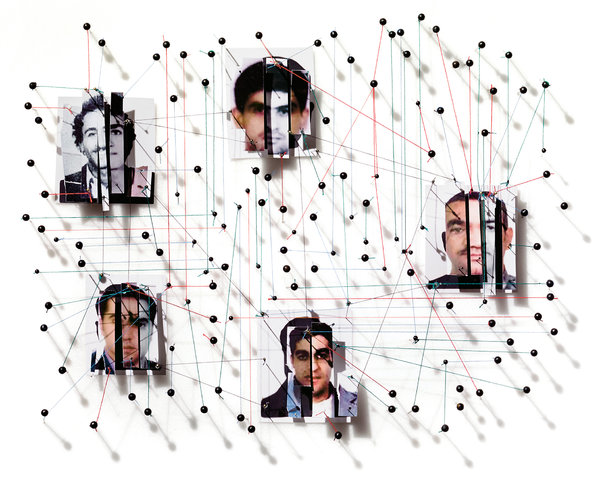
Ironically, Hariri had used his considerable regional and international influence to convince the world that Hezbollah was not a terrorist organization but merely a local Lebanese militia fighting against the Israeli occupation of southern Lebanon. But Israel’s withdrawal in 2000 stripped Hezbollah of its “local resistance” fig leaf.
For the Lebanese, Hezbollah has proved to be a curse. Domestically, the party’s bombastic rhetoric and its involvement in regional wars and occasional flareups with Israel have kept foreign investors away from Lebanon and sent the economy into a nosedive. Thanks to Hezbollah, Lebanon has defaulted on its debts for the first time, thus aggravating an already unprecedented economic decline.
Remittances sent home by the large Lebanese diaspora are among the highest in the world and a key prop to the country’s economy. Hezbollah’s exploitation of the Lebanese expat community has incurred the wrath of their host countries. The espionage case in Iraq has made all Lebanese living blamelessly in the US the target of suspicion by their fellow Americans.
Yet despite all the economic hardships, Hezbollah continues to stand defiant, scheming to disconnect the country from the world economy completely and instead to plug it into the Iranian-led so-called “economy of resistance.”
In 2017, Iran’s Supreme Leader Ali Khamenei proclaimed the year of “the economy of resistance, production and employment,” which he defined as one in which Iran and its satellite governments become an economic unit living independently of the world economy. The idea is not new; the Soviet Union tried it and we all know how that turned out – there is no Soviet Union any more. Since then, the Iranian economy has shrunk at a rate unseen since 1988. The national currency is in free fall and large sections of the population live in poverty.
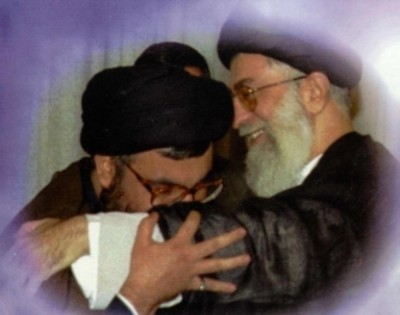
This year, Hezbollah’s chief, Hassan Nasrallah, is forcing Lebanon down the same doomed economic path. Whether the world views Hezbollah as a terrorist organization, or whether his party’s troublemaking jeopardizes the welfare and reputation of the Lebanese diaspora, appears to be of no importance to him. As long as Iran has a plan, Nasrallah will execute it faithfully, regardless of whether it benefits Lebanon or the Lebanese.
Lebanese officials, most of them Hezbollah protégés, have insisted that the state is helpless when it comes to dealing with the party and that the pro-Iran militia is a global problem that Beirut cannot solve alone. In this, Lebanon’s leaders are right.
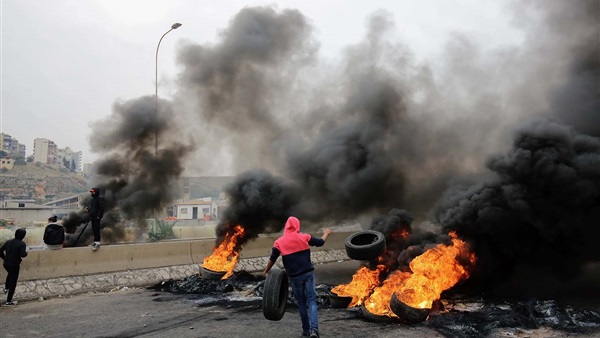
Lebanon is a failing state that harbors a group that is stirring up trouble both within and outside the country.
Two decades ago, the US invaded Afghanistan, another failing state, because it was harboring al-Qaeda. The purpose of the invasion was both to curb the spread of extremism and to rescue Afghanistan from it. With the US now preparing to leave, it cannot be said that America’s plan worked; Afghanistan is barely functioning and in any case the world now favors a different strategy, one that isolates terrorists and the states that host them.
It is a great sadness that a country as sophisticated as Lebanon is on the way to becoming just another Afghanistan.
HUSSAIN ABDUL-HUSSAIN
Hussain Abdul-Hussain is the Washington bureau chief of Kuwaiti daily Al-Rai and a former visiting fellow at Chatham House in London. More by Hussain Abdul-Hussain
ASIA TIMES
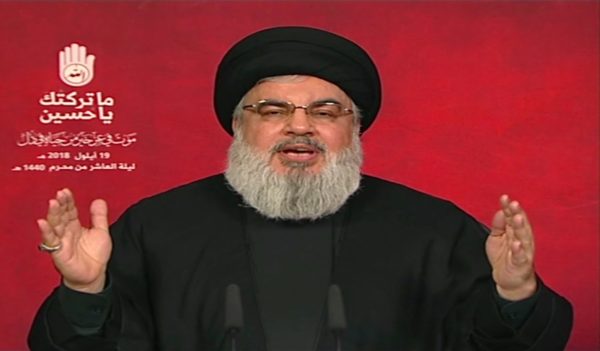

Leave a Reply
You must be logged in to post a comment.